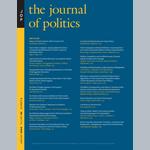Jobs alone won’t lift people out of poverty: Lessons from Ethiopia’s industrial sector
Are jobs the best way to lift people out of poverty? A study from Ethiopia suggests this is not always the case.
The Ethiopian government has worked hard to create jobs in the country’s industrial sector. Foreign investors have been encouraged through beneficial schemes, but also Ethiopian authorities themselves have put vast sums into a growing industrial sector. Since 2010, the government has invested one billion USD annually in industrial parks. These investments are perfectly aligned with a strong tradition in aid and development thinking – that creating more jobs is the best measure to lift people out of poverty.
However, an international team of researchers from CMI and the Policy Studies Institute (PSI) have studied the effect employment in these factories has on poverty, and their conclusion is bleak: They find no long-term impact on poverty and food security. What they have found are long working hours, meager pay, and a poor working environment.
No long-term effects on poverty
The study looks into the lives of 1500 female factory workers employed in 27 factories producing clothes for the Western consumer market. The researchers followed the women over the course of four years and found that the effect on poverty from getting a job in the industrial sector is only short-term.
The researchers found an inverted U-shaped effect on household well-being when it comes to income and consumption: incomes first increased, but then reverted back. The positive effect on the household income only lasted for about a year. After two years, the positive effect of an extra income had disappeared.
-The additional income is spent on higher consumption and does not contribute to the household’s ability to save money. Neither does it increase food security, says Tigabu Getahun, senior research fellow at PSI.
This does not mean that employment has no effect for the women though. For female empowerment the effects are tangible.
-Compared to other job opportunities, the women who work in the factories are paid 50 % more. The positive effect of having their own income may be short-term, but it is still important. The amount of money may not be sufficient to make a real difference for the household as a whole, but for the individual women it makes a difference. Many poor women get access to money to spend according to their own preferences. says Espen Villanger, director at CMI.
A wider perspective is needed
For the past decade or so, development interventions and policies have been strongly influenced by the idea that a permanent job with a decent salary is an effective way out of poverty, and consequently that policy makers should focus on boosting growth in labour markets.
-Creating jobs to lift people out of poverty has been a hallmark of development interventions, but our findings do not support this train of thought. Rather our study provides evidence that the Ethiopian and international money that have been siphoned into building the industrial sector have not had the predicted effect. This approach does not work within the wage- and employee dynamics of Ethiopia, says Villanger.
Villanger compares the effect of getting a job with another popular strand within development policies; micro credit, where people who are not eligible for ordinary loans are given small loans to boost their capital and encourage entrepreneurship.
-In principle there is little difference between micro credit and getting an industrial job, says Villanger, these interventions do not lead to big reductions in poverty.
Both job creation and micro credit have been chosen as avenues to boost development and economic growth because people according to economic theory will tend to invest or save when they get an additional income. Yet, the study on female employment in Ethiopia suggests there is no such guarantee.
So what should policy makers do to lift people out of poverty in a situation where neither job creation or micro credit seem to be effective approaches?
Villanger stresses that their study does not provide any final conclusions to the bigger debates on how to boost development but argues that their findings provide important lessons to policy makers on what matters at the level of the individual. Their study clearly indicates that policy makers need to take a more holistic perspective that also includes for example work environment and health and safety.
Also, there are few opportunities of climbing the career ladder. The owners of the factories are predominantly from China and India, and they tend to hire people from their respective countries in leadership positions. This leaves the Ethiopian women who are thought to benefit from the job opportunities at the factories with the lower paid positions.
The researchers found that only a few years into their new career as an industrial worker, the women left their jobs, either seeking employment elsewhere or dropping out of the job market altogether hence the Ethiopian model is not sustainable.
-If jobs in Ethiopia’s industrial sector are to lift women out of poverty, the perspective on job creation needs to be wider. A job is not sufficient. Salaries must increase and more attention must be given to a good work environment, he says.
Publication



